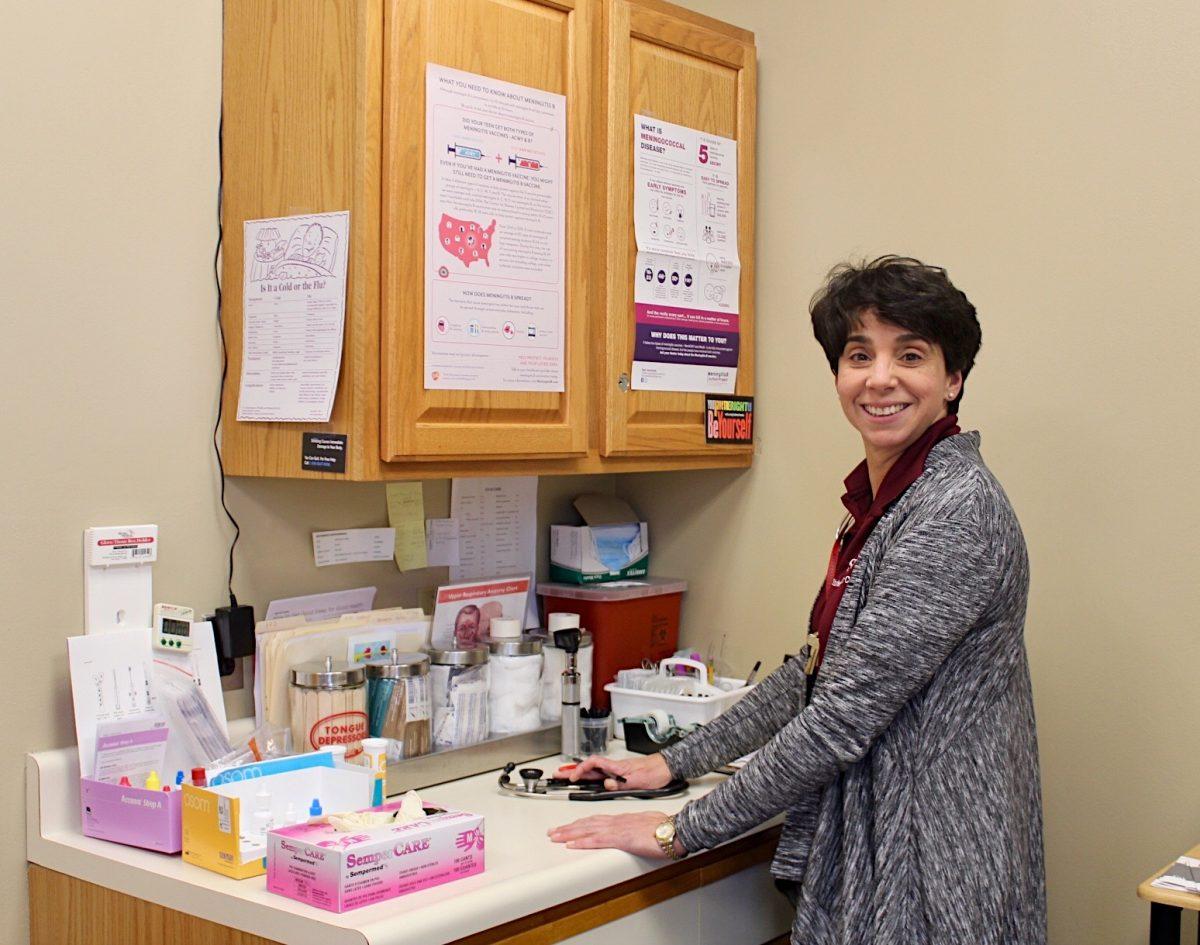Main Line Health partnership offers women’s health services
The university has contracted with Main Line Health to provide more comprehensive women’s health care services, as petitioned for by students last semester.
One of four doctors or nurse practitioners from Main Line Health will be on staff at the Student Health Center every day during business hours on a rotating basis throughout the week. They will join two full-time RNs currently on staff.
The part-time staff members from Main Line Health include Dr. Christine Stallkamp, Dr. Patricia Boken, Diana Morris, CRNP, and Reagan Devine, CRN, making the health center staff all-female.
The partnership is a solution to problems that arose when the university lost two of its primary doctors and nurses last semester. Laura Hurst, CRNP, who was the director of the health center for 20 years, left in the summer of 2018 to take a new job. Dr. Edward Gorrie, an internist, retired in December after 40 years with the university.
Eileen Bevilacqua, RN, who worked as a nurse at the Health Center for 12 years and now serves as the director, said in an email to The Hawk that this part- nership is a good way to replace Hurst and Gorrie and provide more services to students.
“The MLH staff are able to suture, assess for corneal abrasions, and perform GYN exams,” Bevilacqua said. “These procedures were referred to outside providers last semester.”
With the addition of the new staff, the health center now provides services including but not limited to common illness, injury and wellness care such as cold and flu, strep throat, mononucleosis, pneumonia, corneal abrasion and lacera- tion repair, allergy injections, GYN exams and a wider range of STI testing.
The ability of the rotating Main Line Health staff to perform GYN exams specifically responds to a student petition last October. The petition, started by Catherine Geruson ’19, Molly Mullen ’19 and Sara Hoffman ’19 and facilitated by University Student Senate (USS), demand- ed a full-time gynecologist be hired in the health center after the university did not hire new staff following the departure of the only staff members with women’s health experience.
Geruson said a partnership with Main Line Health was mentioned as a solution in her meeting with administrators and she is satisfied university officials kept their word.
“For the most part, I think for a col- lege clinic, they’re meeting a lot more needs with this change,” Geruson said. “That definitely meets what I wanted and what a lot of other girls wanted. I can’t speak for everybody, but I think it’s defi- nitely satisfactory.”
Bevilacqua said the health center is also allowing students to schedule appointments in order to reduce wait times. Previously, students were served on a walk-in basis only.
Meghan Doyle ’19, who went to the health center as a walk-in three weeks ago and then made an appointment for later in the week, said she waited 25 minutes without an appointment and 10 with one. She saw one of the clinicians from Main Line Health and said the experience was a good one.
“It seemed like there was good commu- nication between the nurse from the health center that I talked to earlier in the week and the doctor, so it wasn’t a lot of those same repetitive questions,” Doyle said.
Bevilacqua said the Main Line Health partnership has been a positive one so far. “The doctors and nurse practitioners from MLH are able to care for the whole person,” Bevilacqua said. “They have been incredible. They are excellent clinicians and truly seem to care about the well-being of the students.”













































